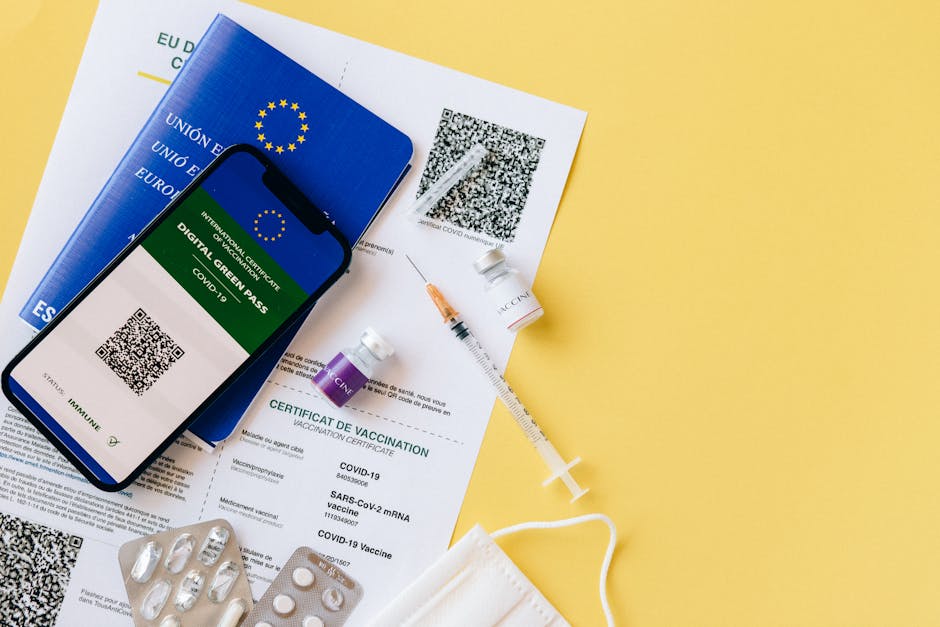No products in the cart.
WHO Pandemic Agreement: A New Framework for Global Health Security
The WHO Pandemic Agreement aims to reshape global health responses and workforce mental health strategies for 2025.
Geneva, Switzerland — On October 12, 2025, the World Health Organization (WHO) unveiled a landmark Pandemic Agreement aimed at redefining global health security. This comprehensive framework responds to the lessons learned from the COVID-19 pandemic, emphasizing collaboration among nations and a proactive approach to health crises.
The agreement addresses various dimensions of pandemic preparedness, including surveillance systems, vaccine distribution, and mental health support for the global workforce. By establishing protocols and ensuring equitable access to resources, the WHO seeks to mitigate the devastating impacts of future pandemics.

Historically, pandemics have exposed significant vulnerabilities in health systems and workforce preparedness. The COVID-19 pandemic highlighted the need for robust frameworks to protect not only physical health but also mental well-being. According to the WHO, mental health issues surged during the pandemic, with a 25% increase in anxiety and depression globally[1]. This agreement aims to integrate mental health initiatives into the core fabric of pandemic response strategies.
 Youth Empowerment
Youth EmpowermentAS Watson’s Global Youth Employment Initiative Hits Milestone
AS Watson has surpassed the halfway mark in its global youth employment pledge, focusing on digital skills training for young…
One of the key features of the Pandemic Agreement is the establishment of a Global Health Workforce Coalition. This coalition will focus on enhancing mental health resources for healthcare workers, who have faced unprecedented stress and burnout. The WHO estimates that the global shortage of healthcare workers could reach 18 million by 2030, exacerbating the challenges of effective pandemic response[2].
The COVID-19 pandemic highlighted the need for robust frameworks to protect not only physical health but also mental well-being.
Moreover, the agreement calls for the development of a digital health infrastructure to support real-time data sharing and communication. This includes leveraging technology to track outbreaks and streamline vaccine distribution. The WHO advocates for a unified approach that harnesses the expertise of tech companies, healthcare providers, and governments to create a resilient health ecosystem.
Critics argue that while the intentions behind the agreement are commendable, implementation will be key. There are concerns regarding funding, political will, and the ability to enforce compliance among member states. The WHO has estimated that an investment of $31 billion per year is necessary to achieve the goals outlined in the agreement[3].
Another point of contention is the balance between national sovereignty and global cooperation. Countries may be hesitant to relinquish control over their health policies, fearing potential economic repercussions. However, the WHO emphasizes that collective action is vital for global health security, particularly in an interconnected world.
 Artificial Intelligence
Artificial IntelligenceWaymo Under Investigation for School Bus Incidents in Austin
Waymo's self-driving cars face scrutiny from US safety regulators due to incidents involving parked school buses in Austin, raising concerns…
Read More →As the workforce continues to adapt to a post-pandemic reality, mental health initiatives will play a crucial role in sustaining productivity and preventing burnout. The agreement’s focus on mental health is a recognition of the critical link between psychological well-being and effective work performance.
The Pandemic Agreement also sets a precedent for future collaborations in addressing global challenges. It encourages countries to share best practices, resources, and knowledge, fostering a spirit of solidarity in times of crisis. By prioritizing global health security, nations can create a safer environment for their citizens.
The agreement’s focus on mental health is a recognition of the critical link between psychological well-being and effective work performance.
This new framework presents an opportunity for organizations to reevaluate their health policies. Companies are encouraged to implement mental health programs and support systems to protect their workforce. The WHO’s emphasis on mental health as part of the pandemic response underlines the importance of addressing employee well-being in all aspects of organizational strategy.
 AI
AIAI and Human Rights: The Future of Ethical Careers
AI ethics careers are becoming pivotal in supporting human rights globally. This article explores the intersection of technology and law…
Read More →Looking ahead, the successful implementation of the WHO Pandemic Agreement could reshape how countries prepare for and respond to health crises. By prioritizing mental health alongside physical health, nations can forge a more resilient workforce capable of weathering future challenges. The commitment to global cooperation and shared responsibility fosters hope for a healthier, more secure future.











